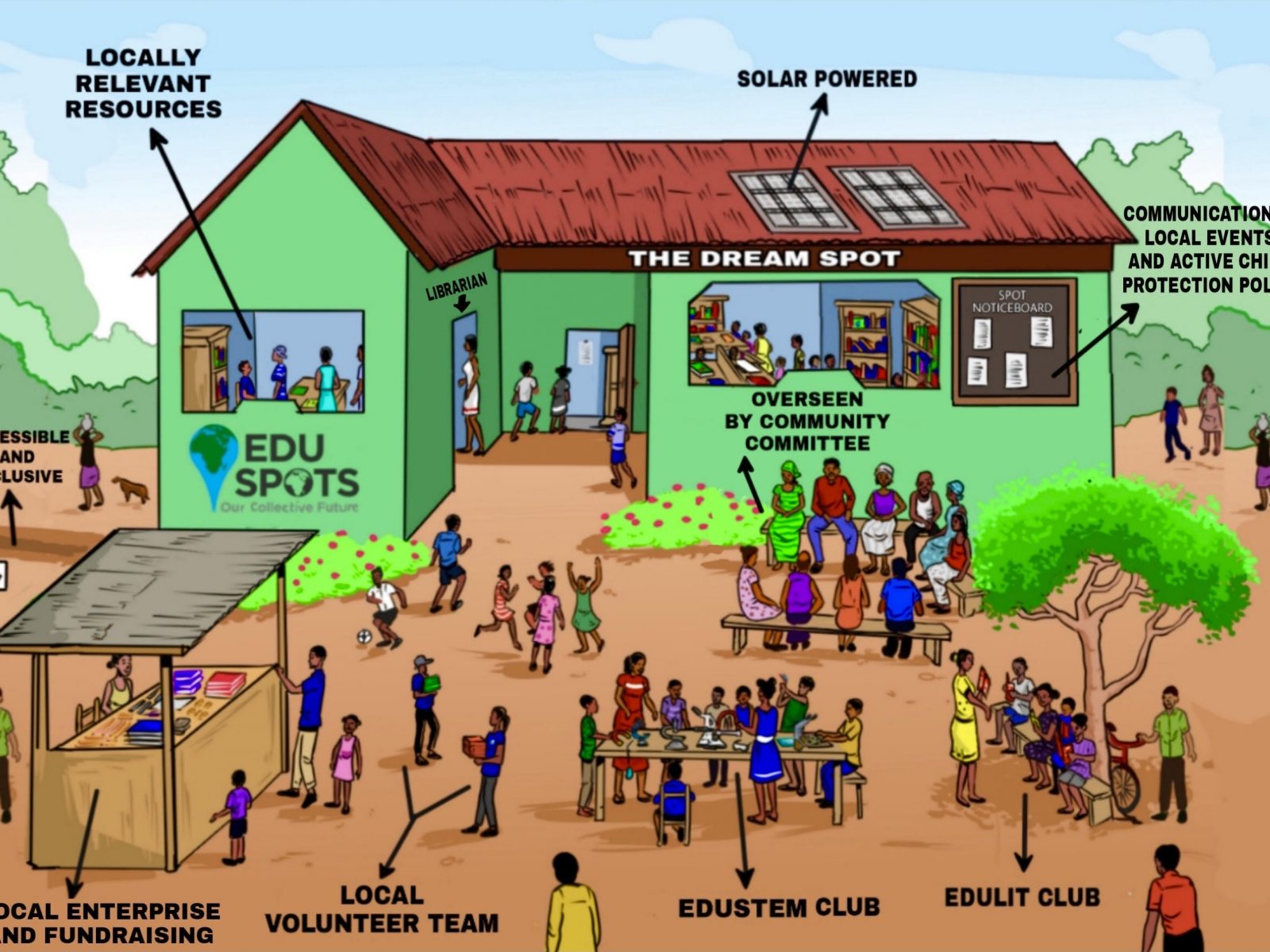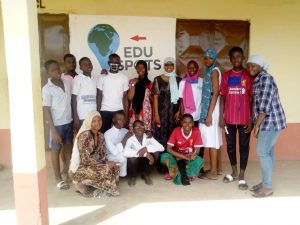This is the model of practice that we hope all Spots in the EduSpots network can work towards, with our support.
This has been created through the ideas and practice of volunteers and staff from across our wide network. We continue to refine and research a model that could support communities in low-resource settings across the world in leading and sustaining their own change through education.
The model is based on 8 core areas, which are also the focus areas of training through our Community Leadership in Education (CLEd) programme.
Project Management & Sustainability
- There is a management committee to oversee the day-to-day running of the Spot which meets regularly, comprising a representation of a cross-section of stakeholders in the community.
- Clear schedule of regular educational activities and opening hours.
- Clear plan for all other areas of focus, such as child protection, fundraising, volunteer and community engagement.
- Collect and submit information on average number of Spot users, infrastructure, funds, etc every three months.
- Activities are planned in line with our environmental sustainability policy.
- Partnership agreements with EduSpots are signed and understood.
- Resources are accounted for and monitored closely.
- A book loaning system in place.
Team Building & Community Engagement
- Engagement and interaction with community members; this includes traditional, political, educational and religious leaders.
- Evidence of teamwork in all activities.
- Volunteers are registered and inducted both centrally and locally.
- Evidence of input of community members into Spot programmes.
- Evidence of multiple schools and local groups in the community using the Spot.
- Engagement in EduSpots’ Empowerment Sessions.
Child Protection and Inclusion
- EduSpots’ child protection policy is understood by all volunteers and Spot users and is on display and actively employed.
- Children are comfortable and safe at the Spot and all activities
- Evidence that all are equally welcome at the Spot and steps are actively taken to ensure Spot activities and resources are inclusive.
- Diversity of opinions from the community are sought.
Education Project Design
- Education programmes are designed that meet the needs of the community.
- Educational activities are clearly publicized to the local community.
- Permissions are sought in advance from schools, parents and local education authorities for programmes involving children.
- Information is gathered to evaluate the impact of education programmes.
Practical STEM Education
- Existence of a vibrant STEM club, using aspects of the EduSTEM model
- Participation in major stem activities such as STEM challenges.
- Have a monitoring and evaluation system for STEM participation.
Literacy Development
- Existence of a vibrant literacy club, using aspects of the EduLit model
- Engagement in literacy challenges, the EduLit model, and our literacy festival.
- Clear locally relevant literacy resource section including African fiction and non-fiction books, local text books and Ghanaian-specific phonics resources.
- Have a monitoring and evaluation system for literacy participation.
Fundraising and Social Entrepreneurship
- Regular fundraising and enterprise activities are organised.
- Ability to fund maintenance and other needs of the Spot.
- Partnerships are sought and sustained with local companies, individuals and bodies.
- A transparent system of accountability in place to ensure efficient management of funds.
Communication
- Clear Spot signage demonstrating both community ownership and EduSpots network membership.
- Clear channels of communication for volunteer team and community members.
- Impact of programmes and the Spot clearly communicated to external stakeholders.
- Communication of Spot activities onto the main EduSpots WhatsApp feed.
- All communications in line with EduSpots’ communication and branding strategy.
- Strong communication with EduSpots staff regarding activities, operations and support needed.
Ideas or questions?
If you have any questions or suggestions relating to our work, please contact the Chair Cat Davison directly on cdavison@eduspots.org
If you would like to support our work, please also reach out. Donations can be made via this link, where fundraising pages can also be set up easily: www.justgiving.com/eduspots
EduSpots… community-led education for #OurCollectiveFuture





